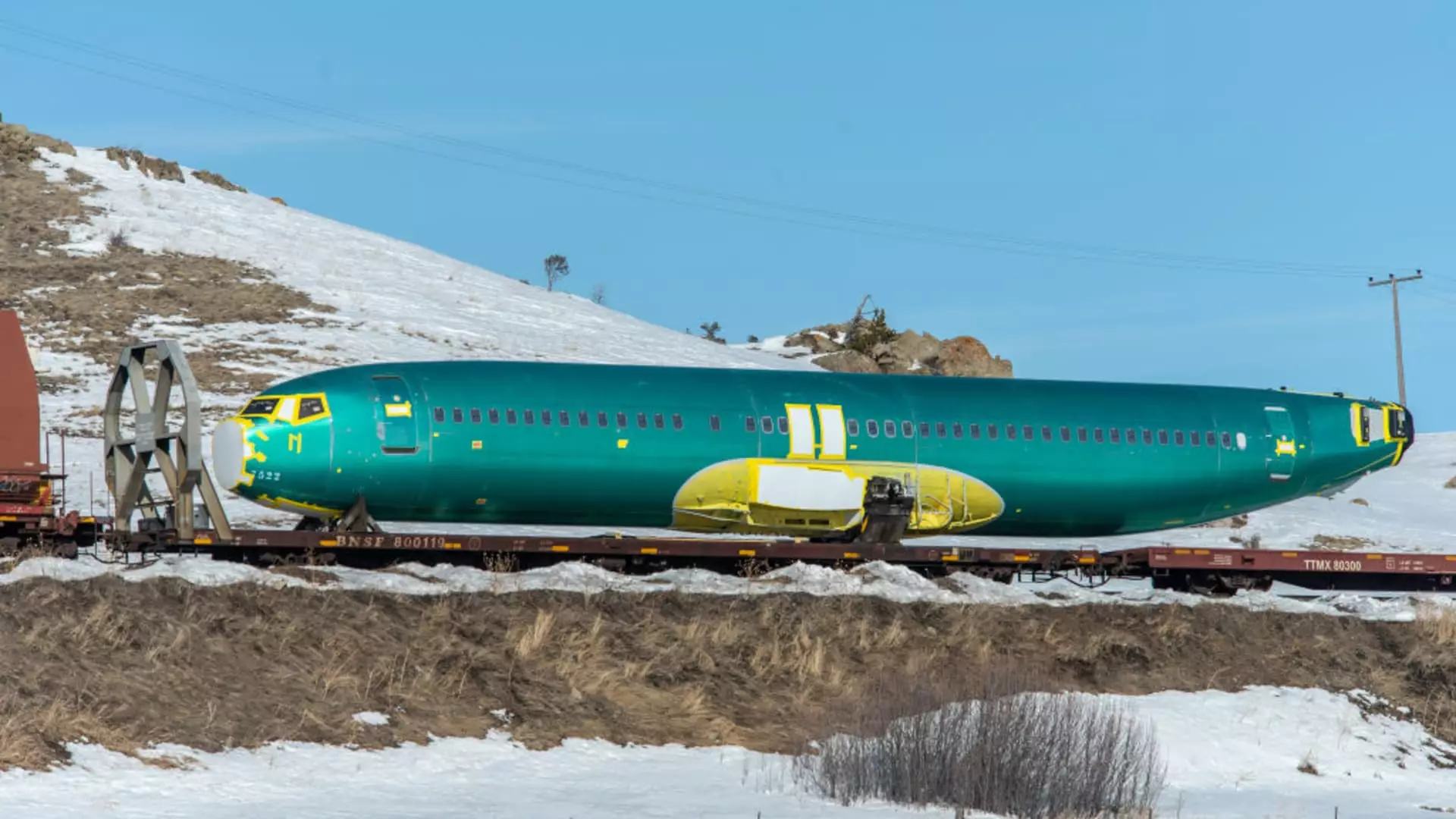Boeing CEO Dave Calhoun is set to meet with the Federal Aviation Administration (FAA) along with other top company leaders, to present a quality improvement plan that showcases enhanced staff training and production practices at its factories. This meeting comes after the FAA ordered Boeing to come up with a plan following a serious incident involving a 737 Max 9 airplane earlier this year.
In the wake of a near-catastrophic blowout of an airplane door panel on a new 737 Max 9, the FAA mandated that Boeing deliver a quality improvement plan within 90 days. This incident, which occurred on an Alaska Airlines flight in January, revealed that bolts were not properly installed to secure the panel on the plane. Consequently, the FAA restricted Boeing from increasing production of the 737 Max until it was satisfied with the company’s quality control enhancements.
The crisis has led to a further tarnishing of Boeing’s reputation, increased federal scrutiny, and a slowdown in 737 Max output. As a result, airline customers such as United and Southwest have had to adjust their growth strategies. Boeing’s Chief Financial Officer has admitted that the company is likely to burn cash instead of generating it this year, with an estimated $4 billion expected to be used in the current quarter alone.
Long-Term Approach to Improvement
Boeing executives have acknowledged that the 90-day plan is not a quick fix for the company’s issues. CFO Brian West emphasized that the plan is just the beginning and that feedback received after the meeting will be crucial. The update presented by Boeing on Thursday is anticipated to outline enhancements in staff training, including simplified instructions for mechanics, improved tool availability, and a reduction in “traveled work” – a process where tasks are completed out of sequence.
Boeing is also expected to elaborate on its implementation of factory “stand-downs”, during which work is halted to facilitate discussions with employees about potential manufacturing improvements. These brief pauses in production were initiated in the aftermath of the door plug blowout incident involving Alaska Airlines. This proactive approach demonstrates Boeing’s commitment to addressing production line issues and enhancing overall quality control measures.
The upcoming meeting between Boeing and the FAA signifies a critical juncture for the aircraft manufacturer as it strives to regain trust, improve safety standards, and rebuild its reputation within the aviation industry. The presentation of a comprehensive quality improvement plan and the company’s willingness to engage in constructive dialogue with regulatory authorities are positive steps towards rectifying past flaws and ensuring a more secure future for Boeing’s fleet of aircraft.


Leave a Reply